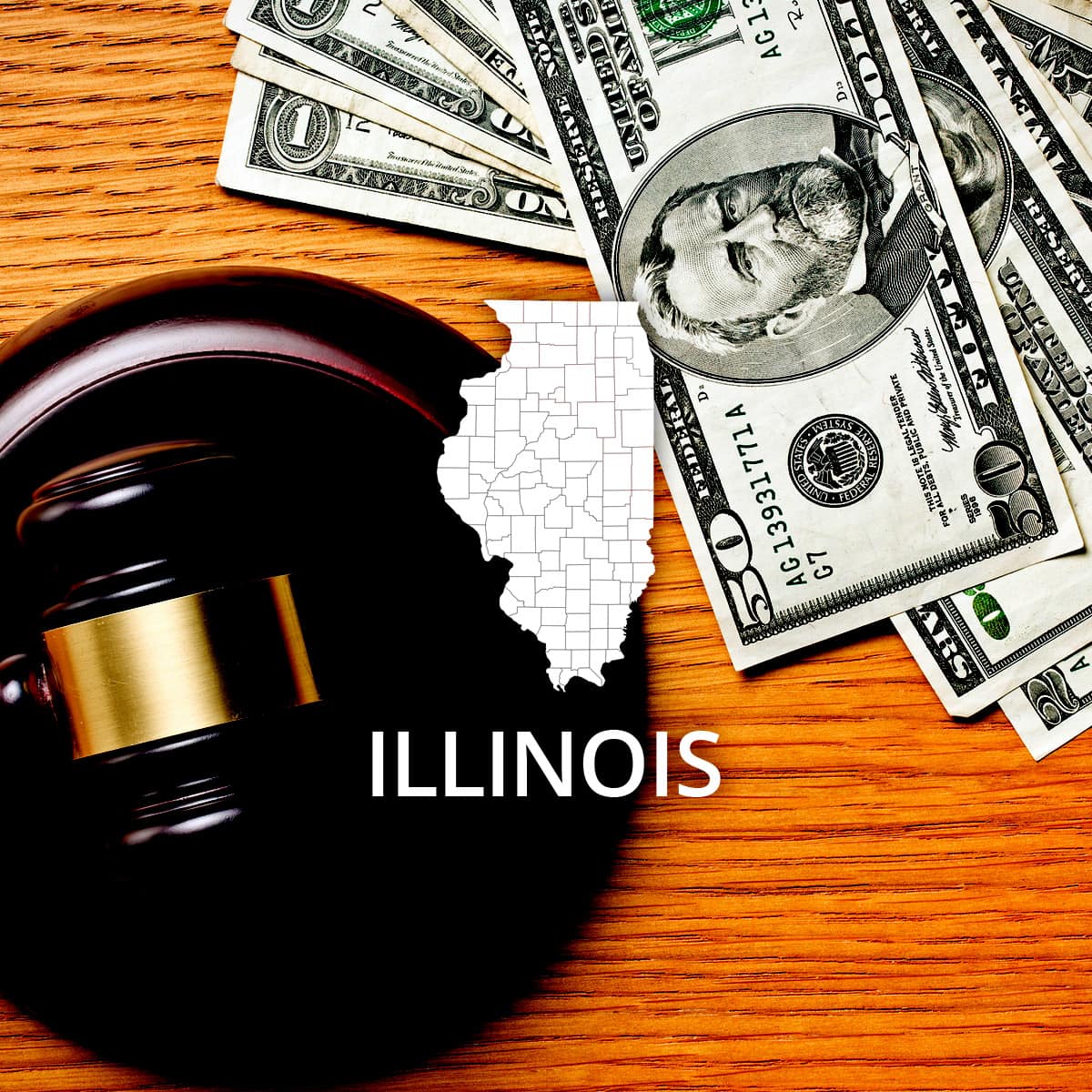 Multiple Bankruptcies: How Often You Can File One?
Multiple Bankruptcies: How Often You Can File One?
Table of Contents
 How to File Bankruptcy in Illinois
How to File Bankruptcy in Illinois
 There are 4 types of bankruptcies a petitioner may file in Illinois. Individuals and married couple may file for Chapter 7 or 13 and business are eligible for Chapter 11 or 12. All bankruptcies must adhere to federal standards but can be filed for in District Courts. Illinois has 3 districts with multiple courts in each.
There are 4 types of bankruptcies a petitioner may file in Illinois. Individuals and married couple may file for Chapter 7 or 13 and business are eligible for Chapter 11 or 12. All bankruptcies must adhere to federal standards but can be filed for in District Courts. Illinois has 3 districts with multiple courts in each.
 Types of Bankruptcy and Terms
Types of Bankruptcy and Terms
Chapter 7 bankruptcy, or straight bankruptcy, is an option for some petitioners to eliminate most if not all of their unsecured debt from creditors like credit card companies and even some medical bills. This can be an attractive choice for those with few assets and limited income. Non-dischargeable debt such as student loans, back taxes, and child support remain the responsibility of the debtor even after completion of a Chapter 7 bankruptcy.
An alternative to Chapter 7 is Chapter 13. Under this code, an individual or married couple can retain their assets such as a home or car as long as payments are being made. Chapter 13 serves to minimize and reorganize debts so that a petitioner can repay most creditors in a period of 3 to 5 years.
Chapter 11 is similar because the code allows for debts to be restructured, except this rule is in regard to business bankruptcy. A business may require bankruptcy relief and file for Chapter 11 but remain open while they pay their debt over a period of 3 to 5 years. Chapter 12 is specifically designed for family farmers or fishermen to maintain their businesses while they repay heavy debts over a brief period.
Official bankruptcy forms for the U.S. Bankruptcy Courts are available at https://www.uscourts.gov/forms/bankruptcy-forms or RecordsFinder.com Court Forms Section.
 Steps to Filing Bankruptcy
Steps to Filing Bankruptcy
Under the conditions of the 2005 Bankruptcy Act, any petitioner who files for bankruptcy must first receive credit counseling within 6 months prior to filing. If filing for Chapter 7 or Chapter 13 is deemed the best option, a petitioner has many steps to follow from start to completion.
The first step is to determine what type of bankruptcy to file. This is done by way of a Means Test, which compares the debtor's income over the last 6 months with the median income for the state of Illinois. If a petitioner has a lower income, he or she may file for Chapter 7 and relinquish non-exempt assets to the court for liquidation to repay their debt. A person with a higher income is eligible for Chapter 13 only.
Next is to gather the necessary documentation for court. This includes, but is not limited to: loan information, a list of debts, an inventory of possessions, tax records for 2 years, paperwork on recent major financial transactions, deeds of property, titles for vehicles and monthly living expenses. A person filing for Chapter 13 will also need to supply the court with a summary of how the debt can be paid off in a period of 3 to 5 years.
To petition the court, it is imperative the debtor file the correct forms along with their paperwork. Some choose to hire legal counsel to file, while others choose to file on their own. The paperwork, summary and forms are referred to as "the schedule" and submitted to the court for review. At this time an automatic stay is placed on the petitioner's credit and he or she can no longer be contacted by creditors. Any foreclosure proceedings are halted at this time.
The case is reviewed by a court appointed trustee who will use the petitioner's non-exempt belongings to offset the debt load. Afterwards a 341 meeting is called and the creditors are invited to meet with the debtor to negotiate. If an agreement cannot be reached between the trustee, creditors, and the debtor, a judge will intervene to decide the terms of repayment.
Before a bankruptcy is finalized the petitioner must complete a financial management course recommended by the court. Chapter 13 filers are expected to continue making payments according to the court's ruling of the agreed upon period of time.
 Location Specific Information
Location Specific Information
Illinois is comprised of three districts to receive filings and conduct hearings for bankruptcy. The first district is the Illinois Central Bankruptcy Court which has locations in Bloomington, Danville, Decatur, Galesburg, Kankakee, Paris, Peoria, Quincy, Rock Island and Springfield. The Northern Bankruptcy Courts are found in the following cities: Chicago, Joliet, North Aurora, Rockford, Waukegan, and Wheaton. Lastly is the Southern Bankruptcy Court with the following offices: Alton, Benton, East St. Louis, Effingham, and Mt. Vernon.




